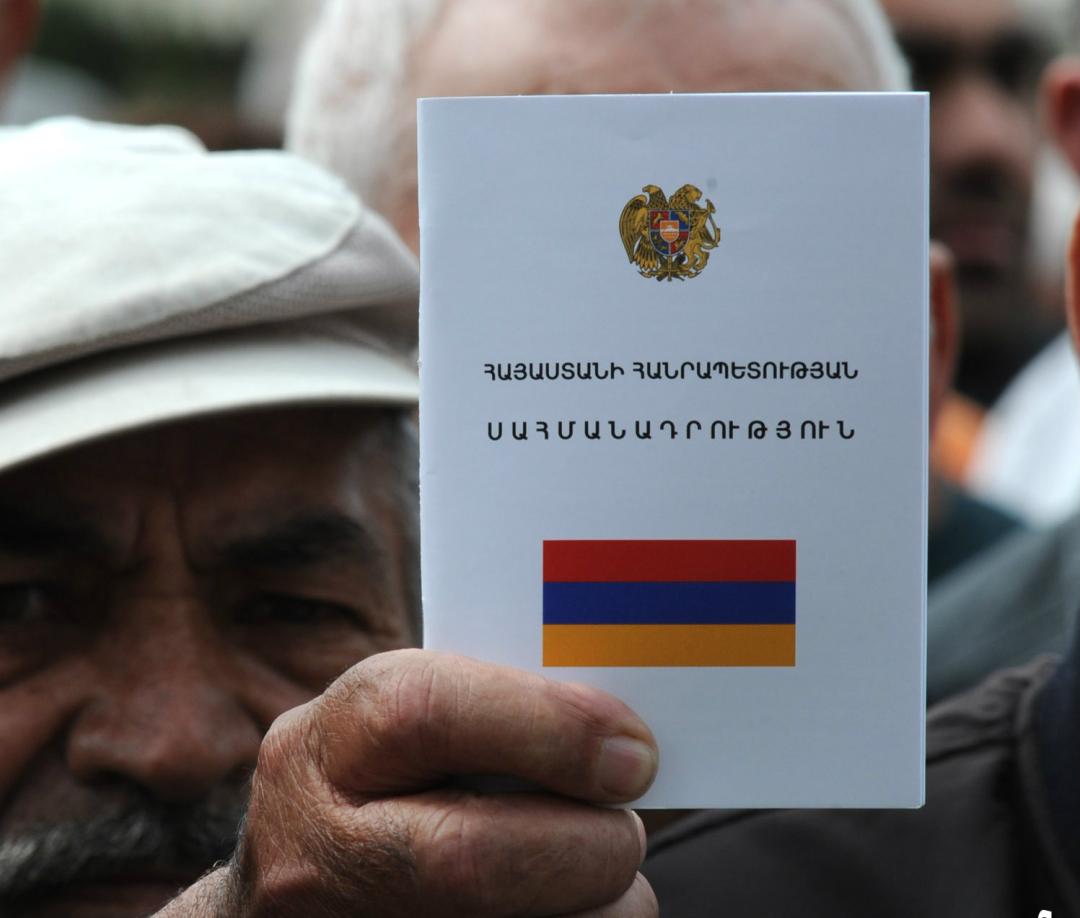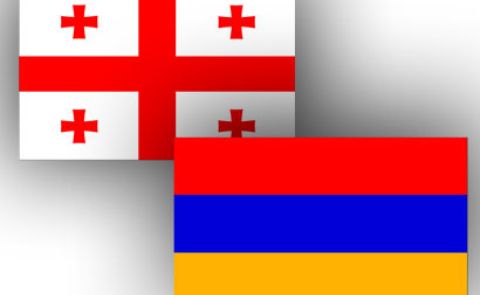
To Change or Not to Change: Is Armenia Going to Change Its Constitution Again?

Throughout the 4 years since the Velvet Revolution and the shift to a parliamentary system, Armenia went through 2 snap parliamentary elections, a constitutional crisis, a war, subsequent crisis in security related to border delimitation and demarcation with Azerbaijan, supposed implementation of the cease-fire agreement and related public protests, so-called “military coup attempt”, and, finally, unexpected resignation of the President. During these years the necessity to make constitutional amendments and discuss the viability of a parliamentary system was pointed out by experts, civil society, and public officials. The government has created a special body to examine the Constitution, and the agenda of the constitutional amendments has not been developed yet. But is Armenia really going to amend its Constitution? Does it really need to?
Following the snap parliamentary elections 2021, civil society, media representatives, and numerous politicians called on the parliament to make changes to the political system, including the review of the parliamentary system that provides the prime-minister with super powers, doesn’t ensure checks and balances, and independence of judiciary. The newly formed government included a recommendation to adopt a new constitution or to arrange public discussions on constitutional reforms in its programme.
The public discussions with participation of civil society and legal experts were launched in autumn, and the Constitutional Reforms Council was formed to outline a possible agenda for constitutional amendments. The Council consists of the representatives of the ruling party, non-parliamentary forces, and civil society representatives. The opposition boycotted formation of the Council. The Council will select 5 lawyers who will examine the Constitution and the relevant laws based on the agenda developed by the Council. The lawyers’ conclusions/recommendations will be discussed and afterwards presented to the public.
At this point, the Council has not clearly defined potential topics that could be included in the agenda of constitutional reforms. Nevertheless, Council members have provided some insight arguing the Constitution does not ensure separation of powers, check and balances, and effective accountability of the government to the parliament in particular. The Council is also reported to be considering the removal of the stable parliamentary majority rule, and merging the Constitutional Court and the Court of Cassation. Recently a representative of the Ministry of Justice has argued the possibility of returning to a semi-presidential system would also be on the agenda. The Council has already voted for keeping the parliamentary system, but since “recently the question has appeared on the agenda again and is discussed in different circles,” maybe the Council would consider it.
Public discussions on the recommendations elaborated by the lawyers may take a year. If they decide to make constitutional changes, and changing articles would not require a referendum, they will be made through parliamentary voting. Otherwise, especially if the shift to another model of government is needed, a referendum will be held. However, developing of a draft constitution or substantial constitutional reforms will take 3 years.
Opinions
Overall, there is consensus that some changes need to be done to the political system, maybe the shift to another model of government. Some public officials claim the current initiative is aimed to provide reproduction of power. Nevertheless, there are some concerns that the current initiative may be far-fetched, as there have been a lot of comments, but no clear and specific agenda. Besides, the government is believed to prefer keeping the public unaware of the current developments in the framework of Armenian-Turkish negotiations and implementation of the cease-fire agreement with Azerbaijan, to avoid possible outcry that may impede the developments.
Legal experts and political analysts doubt that a parliamentary system would function well with current level of political development and underdeveloped party system in Armenia, not to mention the deficiencies of the Constitution. All this has resulted in the centralisation of power in the prime minister’s office, fusion of powers, ineffective president office, and a partially independent judiciary.
Recently, the Prime Minister has claimed that the creation of the Council doesn’t imply that any constitutional amendments will be made. “To put it simply, we have a task, let’s say, to expose our current Constitution to audit 4 years later since it came into force...” He also confessed, “my conviction is that government system should not be changed,” and argued that, most likely, it was the parliamentary system that helped overcome crisis in domestic politics in 2021. In contrast, in March 2021, in the light of the dismissal of the Armed Forces General Staff leaders, he claimed a referendum would be held in October to adopt a new constitution or constitutional amendments, and the shift to semi-presidential system “should be one of the possible options.” Given Prime Minister Nikol Pashinyan’s contradictory statements and the fact that nothing had been done by October, the media and civil society representatives expressed their doubts about the seriousness of the government’s intentions.
Opposition party officials claim proposing constitutional amendments in the background of events is meant to distract the public and an attempt to retain power after current tenure is over. Back in 2020, Edmon Marukyan, leader of then parliamentary opposition “Bright” Armenia,” argued the “system of super prime minister” couldn’t stay for so long.
In October 2021 the President spoke about the need of constitutional amendments to ensure a balance of power between branches, but not necessarily to shift to a presidential system. Not once did he express his discontent with his formal authorities at the times of the crises.
Well-known media figures argue the authorities’ intentions are evident. The current parliament’s tenure ends in 2026, when the potentially updated Constitution will have come into force through a referendum. Afterwards they believe that Pashinyan will win the presidential elections since people will choose him so that Kocharyan will not return. Hence, the reproduction of power will take place.
As for the public, people are exhausted after the 44-day war in Nagorno-Karabakh and are indifferent towards any developments in political realm. Following the news, they complain that something unlawful is happening, and they point to how the ruling party discusses and adopts laws. They will hardly go out to vote at a referendum. And it is even more difficult to say how the public will behave in 2026, if the model of government changes.
Potential repercussions of potential constitutional reforms
Having the nominal head of the country, almost 2/3 of the seats in the parliament, and the majority government, the ruling party doesn’t have any difficulties getting the parliament’s approval of any bills, be they contradictory from the perspective of law or not.
The prime minister has both legislative and executive powers. He has direct control over law enforcement structures, and he makes decisions in the security sphere. The government appoints and dismisses heads of several bodies upon the recommendation of the prime minister. In fact, the prime minister was transferred all the powers of the president from the previous regime, since the Constitution was adjusted for reproduction of power, and tailored for Serj Sargsyan.
The Constitutional Court is considered to have become loyal to the government after the constitutional crisis in 2018-2020. Having failed to force the non-loyal president of the court to resign through mass protests, the parliament initiated constitutional amendments to shorten the tenure of the court members. When the referendum was suspended because of the pandemic, the parliament opted for parliamentary voting, despite negative reactions of international institutions and human rights activists. The Armenian judicial code was also amended, some limitations were put on judges’ activities, according to the Human Rights Defender, not really matching international standards.
Seemingly, for the ruling party there is no point in changing the Constitution or the system. Speaking of 2026, if until that time the parliament does not undertake actions that would infuriate the nation and bring about their dismissal, political apathy continues. If no real leader appears on the stage, the ruling party and Pashinyan himself may try to retain power and succeed without changing the system. The parliament has also proven to have no difficulties amending the Constitution whenever and however it wants, even without establishing specific bodies or holding a referendum.
Yet, one cannot completely rule out the possibility of constitutional amendments. First, the merger of the Constitutional Court and the Court of Cassation is the amendment the ruling party has cherished for some time since it will help strengthen the ruling party’s control over judicial system. The ruling party, and Pashinyan personally, may really need this in the face of making unpopular decisions in Armenia-Turkey, Armenia-Azerbaijan relations, which Pashinyan may be forced to make soon. Second, anticipating a sharp drop in popular support following the unpopular decisions, thus viewing his party as unable to gain enough votes at the parliamentary elections 2026. Pashinyan may fall into the same trap as Serzh Sargsyan did, changing the system. Third, Armenia has some commitments in regard with implementation of reforms in the sphere of the rule of law and good governance in the framework of the CEPA. Hence, the parliament may undertake some amendments, but not change the system.
However, with the vague agenda and relaxed schedule of the Council and too many contradictory statements around the process, it is more unlikely that any amendments will be made. Having avoided loss of public support after the 44-day war in Nagorno-Karabakh and having their legitimacy confirmed at the snap parliamentary elections 2021, the ruling party and Pashinyan must be convinced nothing may undermine public support for them, including upcoming unpopular decisions. As for the CEPA, there are far more urgent questions on the domestic politics agenda. Given the fact that the President’s relations with the Prime Minister and his team never were perfect and the President’s discontent or critics of their actions were mostly disregarded, it is hard to believe that the government will initiate constitutional amendments just for the sake of revising presidential authorities.
Then, one may wonder why Pashinyan has set up the Council if he is not really considering amending the Constitution. Now, the very fact of establishing a specific body and giving it a task to explore possible areas for improvement may be a good thing for the ruling party and Pashinyan himself to demonstrate civil society and the public that they are responsive to public demands. It could also show international organisations that they are eager to ensure democratic development of the country. Also, the controversies surrounding the Council and possible change in the model of government may serve for the ruling party as a formal agenda to distract public attention from ongoing developments in the framework of Armenia-Azerbaijan and Armenia-Turkey relations, the ones that may result in unpopular decisions.
Contributed by Liana Avetisyan, Yerevan
See Also


3+3 Initiative as a New Order in the South Caucasus

Economic Cooperation Between Armenia and Georgia: Potential and Challenges Ahead

Russia and Occupied Abkhazia: A New Type of Relations

Georgia and US: From Close Ties to Caution

